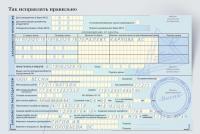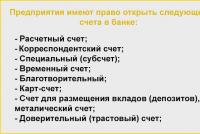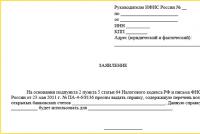Examples of violations of labor rights of workers and the main ways to protect them
The Constitution of the Russian Federation guarantees the protection of the labor rights of workers. Article 352 of the Labor Code of the Russian Federation provides the main ways to protect the labor rights of workers.
Examples of violation of labor rights
An employee's labor rights arise after the conclusion of an employment contract with the employer. The employee has the right to:
- days off once a week, non-working holidays, annual paid leave;
- timely and fully paid salary;
- compensation for harm, if any, occurs in the course of the performance of official duties, compensation for moral damage.
The labor rights of workers are often violated. Delayed payment of wages, non-compliance with the norms of an employment contract, failure to provide paid leave, non-payment of sick leave, illegal dismissal - all this is a serious violation of labor rights.
Legal protection of wages means the inadmissibility of limiting its size, with the exception of withholding income tax and insurance premiums, deductions by decision of the authorized state body. Payment delays are not allowed. In case of liquidation of the organization, payment of wages for the hours worked is guaranteed. The employee has the right to dispose of the salary at his own discretion (Article 137 of the Labor Code of the Russian Federation).
Some employers are also trying to violate the rights of expectant mothers. Protection of the rights of pregnant women at work is provided for by the Labor Code. A pregnant woman cannot be fired and reduced (Article 261 of the Labor Code of the Russian Federation).
The employee can protect his rights by settling the dispute with the employer through negotiations without the involvement of third parties. If this is not enough, you can involve the supervisory authorities or go to court.
What is the protection of labor rights
Some facts
According to the Labor Code, an employee has the right to a lunch break from 30 minutes to 2 hours during an eight-hour working day, which is already indicated in the Charter of the organization and other legal documents. At the same time, eating should take place either in places specially designed for this, or at the workplace, under certain conditions (there must be a table, a chair).
Any rights, including labor rights, must be respected. If the labor rights of an employee are violated, he has the right to defend them in the ways provided for by the Labor Code of the Russian Federation:
- self-defense;
- appeals to state supervisory inspections;
- attracting a trade union organization;
- filing a lawsuit in court.
The concept and methods of protecting the labor rights of workers are given in article 325 of the Labor Code of the Russian Federation.
Which method of protection is more suitable depends on the cause of a particular labor dispute.
The protection of labor rights means that the state provides an opportunity for each participant in labor relations to defend their legitimate interests and restore their rights.
The protection of labor rights implies not only their restoration, but also the payment of compensation for the harm caused.
The employee himself has the right to choose the method of protection. The Constitution of the Russian Federation guarantees workers the right to protect their rights and freedoms by any legal and permissible methods.
Ways to protect labor rights
As already mentioned, the Labor Code provides several ways to protect the labor rights of workers.

Method 1
With the involvement of supervisory authorities authorized by the state to protect the rights of workers. Such an organization is the State Labor Inspectorate. You can apply to the GIT through the Internet. To do this, go to the website of the regional GIT and find the appropriate contacts.
If it is not possible to write by e-mail, please contact the GIT hotline. You can turn to the GIT employees not only for help in solving the problem, but also for advice or clarification. If the issue concerns violation of rights and proceedings with the employer, the applicant has the right to receive all necessary assistance so that the employer does not know who specifically initiated the inspection.
Important! It is impossible to arbitrarily finish work or leave the place of work in order to resolve a collective or individual labor dispute by an employee responsible for the safety of a certain type of activity for the population, if such actions (inaction) are prohibited by law.
Such actions entail the imposition of an administrative fine in the amount of one thousand to one and a half thousand rubles (Article 20.26 of the Code of Administrative Offenses of the Russian Federation).
Method 2
With the help of a trade union organization (Articles 370-378 of the Labor Code of the Russian Federation). If a trade union is created in an organization where the infringed in his rights works, you should try to involve the trade union in the proceedings with the employer. As a rule, trade unions are ready to defend the interests of the worker. The trade union organization must be legally elected, then its intervention will be taken into account and taken into account by the court and the employer. If the union does not exist or its actions do not help, self-defense must be resorted to.
Method 3
Additional Information
Types of violations of labor legislation can be as follows: "grey" salary; there is no employment contract; the mandatory terms of the employment contract are not spelled out; the second copy of the employment contract was not issued to the employee; appointment to work on a day off or overtime work without the written consent of the employee and without additional payment in accordance with the Labor Code of the Russian Federation; the absence of the required leave for the employee during the year; delay in payment of wages, vacation pay and other due payments; imposition of fines on employees; unequal appointment of benefits and bonuses; increase in the volume of work without providing compensation (surcharges, allowances); violation of labor protection requirements; transfer to third parties of the employee's personal data; unlawful dismissal at the initiative of the employer; dismissal of an employee due to personal hostility of the employer to the employee.
Self-defense is provided for by Art. 379-380 of the Labor Code of the Russian Federation. According to Art. 45 of the Constitution of the Russian Federation, a citizen has the right to defend himself by all permitted means. Self-defense means: I independently fight for my rights, without involving third parties.
The law permits the use of refusal to work as a way of self-defense. As regulated by Art. 379 of the Labor Code of the Russian Federation, this is a legal technique and you can resort to it when:
- the employer entrusts the performance of work outside the scope of the employment contract;
- there is a danger to the life and health of the employee;
- the payment of salaries is delayed for more than two weeks.
When refusing to perform his duties, the employee must notify the supervisor in writing, not verbally, of the alleged refusal. On the 16th day of delay, you can write a notice. There are no special requirements for the notification, it is written in any form addressed to the director of the organization or branch.
It should be borne in mind that there is no right to refuse work in case of emergencies, martial law is declared, in conditions where a large-scale disaster threatens and there is a threat to the lives of a large number of the population.
A temporary boycott of labor duties is prohibited if the employee works in one of the industries indicated in paragraph 2 of Article 142 of the Labor Code of the Russian Federation: paramilitary and defense structures, resource supply organizations, etc.
At the time of the lawful termination of work, it is allowed to be at the workplace. How long an employee has the right to boycott the performance of official duties depends on how quickly the violation is eliminated and the employee's rights are restored.
During the absence of an employee from the workplace due to self-defense, the employer does not have the right to dismiss him or violate any rights enshrined in the Labor Code. Payment for missed days should be considered within the framework of the norms of Article 220 of the Labor Code of the Russian Federation: payment for downtime through no fault of the employee.
If the employee is not ready to defend the violation of labor rights on his own, he has the right to go to court.
Method 4
Judicial protection. In accordance with the Code of Civil Procedure of the Russian Federation, an employee has the right to apply to the court for the protection of violated or contested rights, freedoms or legitimate interests. Cases on individual labor disputes are considered in district courts.
In order to settle an individual labor dispute, the employee has the right to apply to the court within three months from the day when he learned or should have learned about the violation of his right. In case of initiation of a case concerning the dismissal of an employee, the limitation period is one month.
Going to court with a claim as part of the settlement of a labor dispute gives the employee the right not to pay state duty and legal costs.
Watch a video that tells about the violation of labor rights of workers
Unemployment Protection and Employment Assistance
Article 2 of the Labor Code of the Russian Federation provides the basic principles of legal regulation of labor relations, one of which is protection against unemployment and assistance in finding employment. This means the provision of guarantees and compensations by the state in case of loss of work, as well as assistance in finding a job.
Having lost his job, a citizen has the right to demand material support from the state, assistance in finding employment. Employment centers are obliged to implement the statutory principle of protection against unemployment.
We are ready to answer your questions - ask them in the comments






